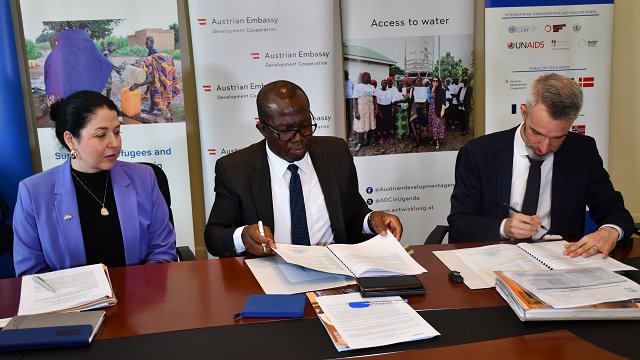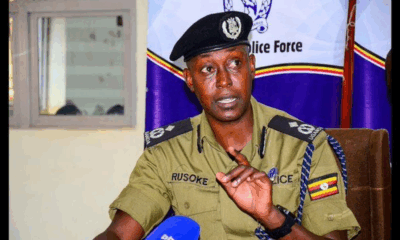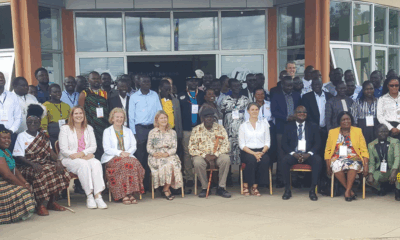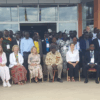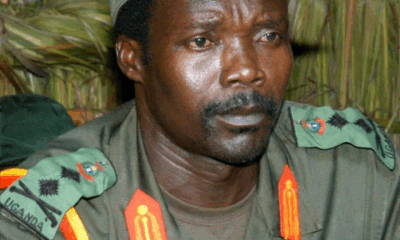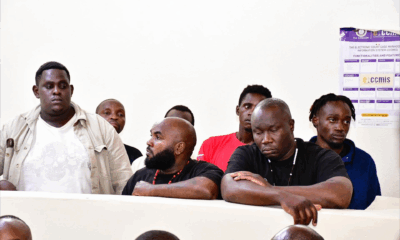Law
UNHCR Seeks Austrian Support to Bolster Legal Aid for Refugees in Uganda
The United Nations High Commissioner for Refugees (UNHCR) has entered discussions with the Austrian government in a bid to secure funding for urgently needed legal aid services for refugees in Uganda. The move comes amid growing concern over the lack of legal representation for thousands of incarcerated refugees, a challenge that threatens their right to fair and timely trials.
According to data from UNHCR, over 5,156 refugees are currently held in detention centers across the country. Many of these individuals face prolonged pre-trial detention, with refugee-related cases taking up to two years on average to be resolved—largely due to the acute shortage of tailored legal aid services.
“Most of these refugees lack both the legal literacy and financial means to effectively defend themselves,” said Matthew Crentsil, UNHCR Representative to Uganda. “They are often traumatized, disoriented, and extremely vulnerable—physically, emotionally, and socially.”
Historically, legal support to refugees in Uganda has been offered through non-governmental partners such as the Refugee Law Project at Makerere University. These organizations provide legal advice, courtroom representation, and guidance on asylum procedures. However, a significant funding shortfall—only 25 percent of UNHCR’s refugee response budget for Uganda has been secured so far—has left these critical services severely under-resourced.
The situation is becoming increasingly urgent as Uganda’s refugee population continues to grow. Current projections estimate the number could surpass 2 million by 2026, putting additional pressure on an already stretched support system.
In response, UNHCR is actively seeking external funding, with Austria seen as a key potential partner. Bernd Brunner, Managing Director of the Austrian Development Agency (ADA), is currently in Uganda on an official visit. On Thursday, he accompanied UNHCR officials on a tour of refugee communities in Kansanga, a suburb of Kampala that hosts a large urban refugee population.
During the visit, Brunner witnessed firsthand the conditions and challenges facing urban refugees, particularly those linked to legal and economic vulnerability. Local authorities in Kansanga reported a worrying rise in crime among refugee populations—largely involving drug use, petty theft, domestic violence, and interpersonal conflicts. Many of these incidents are attributed to high unemployment, lingering trauma, and lack of productive engagement among refugees.
Frank Walusimbi, Associate Communication Officer at UNHCR, emphasized that legal support is only one part of a broader response. He noted that UNHCR and its partners have also introduced economic empowerment initiatives to tackle the root causes of refugee-related crime.
“These programs are equipping refugees with vocational skills and supporting them to start small businesses,” Walusimbi said. “Our goal is to give them alternatives—to empower them to rebuild their lives, contribute to society, and move away from criminal activity born out of desperation.”
While the talks with Austria are still ongoing, UNHCR remains hopeful that a partnership will materialize and help bridge the funding gap. If successful, the support would enable hundreds of refugees to receive timely legal representation, restore faith in the justice system, and improve Uganda’s overall capacity to uphold the rights and dignity of refugees.
Uganda is currently home to the largest refugee population in Africa, and third-largest in the world—a testament to its open-door policy. Yet without robust legal and economic support, the sustainability of that policy remains in question.
Comments



